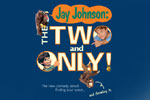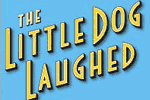 "The Vertical Hour" at the Music Box Theatre, November 29, 2006
"The Vertical Hour" at the Music Box Theatre, November 29, 2006Sam Mendes has brought David Hare's new play to New York. With it is an impressive performance by an actor who has demonstrated quite an impressive range of skills in many varying film roles over the past few years.
It's unfortunate that the sentence above does not describe Julianna Moore.
Mr. Hare's diatribe on US activities from Bosnia (basically none) to Iraq (overthrowing a sitting government) is the plot contrivance employed for what little plot he presents. Nadia Blye (Ms. Moore) is an instructor at Yale on the topic of political studies, following an early career as a war correspondent during the events in Bosnia following the fall of Yugoslavia. She is now engaged to Phillip (Andrew Scott), a physical therapist and British ex-pat, who has taken her to Wales to meet his father, Oliver (Bill Nighy). Oliver, a doctor, who has a cordial but strained relationship with his son, is intrigued by Nadia, but finds it necessary to challenge her belief structure.
The play opens with Ms. Moore counseling Dennis (Dan Bittner), a student who has turned in a less than acceptable essay, which evolves into his confession of love for her. He uses his three weeks of studying Freud to justify his behavior and his belief that "underneath" she has encouraged this from him. She quickly discounts any value in psychology, to which he replies "...[people of the world] know that reality is real, that it exists, but what they think of it is more important." Her response "are you talking about Americans?" Mr. Hare accurately points out that news is no longer the reporting of events, but of the reactions by those involved or not.
This topic surfaces again during a discussion with Mr. Nighy in the next scene. She had been summoned to visit the White House over circumstances in Irag. A proud American, she reported for duty and shared her opinions with the president. Mr. Nighy's Oliver responds "If the Prime Minister called me, I'd let the phone ring." Another pithy observation from Oliver when Nadia talks about America's responsibility to the rest of the world, "Don't forget. You're building an empire, we (Great Britain) just dismantled one."
The other plot in play is the competition between Phillip and Oliver. Phillip felt torn in his parents' loveless marriage, playing the peacekeeper until events finally drove them to separate. He sees Oliver as an unrepentant philanderer and a phony. He suspects Oliver will attempt to seduce Nadia, but despite these faults he goes through the motions in hopes of healing his emotional wounds.
Mr. Nighy's Oliver is an awkwardly charming man, smoothly uncomfortable in his own skin. His presence and performance are organic and real. It is this reality that brings the audience to care for him in spite of his faults and past misdeeds. He is the doctor Oliver defines as "someone who tells you the truth and stays till the end."
Mr. Scott is warm and needy as the son who has spent most of his life trying to differentiate himself from his father. His Phillip loves the silence that so unnerves Oliver, leaves Britain to live in the US and chooses a career as a physical therapist with multiple locations of wellness centers which include massage and personal training. He feels most successful when his father learns that his patients "...pay someone to send them out for a jog," a most ignoble use of one's time as a health professional. He wants to be calm, warm and safe. This is the man Nadia thinks she's looking for.
Alas, it is Ms. Moore who is out of her element here. She has proven herself a talented film actress, having moved from daytime television serials playing twin sisters (or was it half? cousins?) separated at birth and being kidnapped by a fiance who was secretly in love with her aunt on As the World Turns (unmentioned in her bio, BTW) to moving portrayals in the films Safe, The Hours, and End of the Affair. I had high hopes for her skills on stage. Her technical ability to merely project her lines seems to be her biggest weakness. Beyond that, when she says at a critical moment, "I've seen the results of western indifference" describing the genocide that went on in Bosnia, she's not believable. She speaks with neither the passion nor the numbed indifference of one emotionally beaten down by the events she describes. I won't blubber like Ben Brantley did over Ms. Roberts earlier this year, but she is quite beautiful onstage.
It appears that Mr. Mendes is the one who let her down here. There seems to be no assistance provided to her in interpreting her role with a spectrum of how real people speak, how painful memories can choke, how tension can stifle one's speech pattern. Though not to that extreme, some of her deliveries sounded reminded me of the porn film scenes from Boogie Nights. She does give an emotional outpouring during a cathartic moment with Mr. Nighy, but by then it's too little too late. Waterworks are an easy skill to summon from an actor's bag of tricks.
Mr. Hare, too, may share some of the blame. Nadia's character arc is telegraphed pretty openly from the first scene, and ends with no surprise in her "surprise" announcement in the final line of the play. Her references to psychological motives in the final scene don't ring true having discounted them so specifically in the opening scene. Nadia's issues are many, but none are really resolved during the course of the play, only exposed.
Scott Pask's sets, using a cinematic black aperture to reveal first Nadia's jewel-box, paneled, ivy-league office open to reveal a stoic oak on the lawn of Oliver's self-imposed, lonely residence of exile. The mismatch of tables and chairs on this lawn evoked the edwardian eclecticism of rural Wales, although it appeared a bit forced.
When Ms. Moore appeared in the first scene in a brown dress that faded her (and her red hair , believe it or not) into the wookwork of her office, I was hoping for some interesting costuming choices. I wish that Ann Roth had provided some.
It's an interesting play and Mr. Nighy is certainly well-worth seeing. I hope that Ms. Moore will try Broadway again in a role that suits her skills better.
Here's what Ben Brantley had to say in the NY Times. I'm unsure what show Clive Barnes saw, as reported here in the NY Post.



